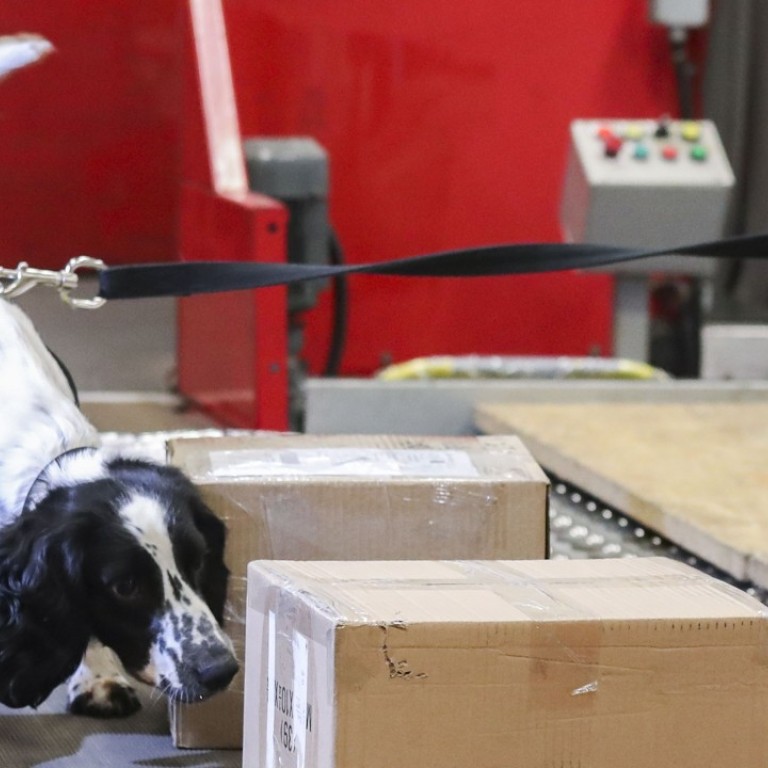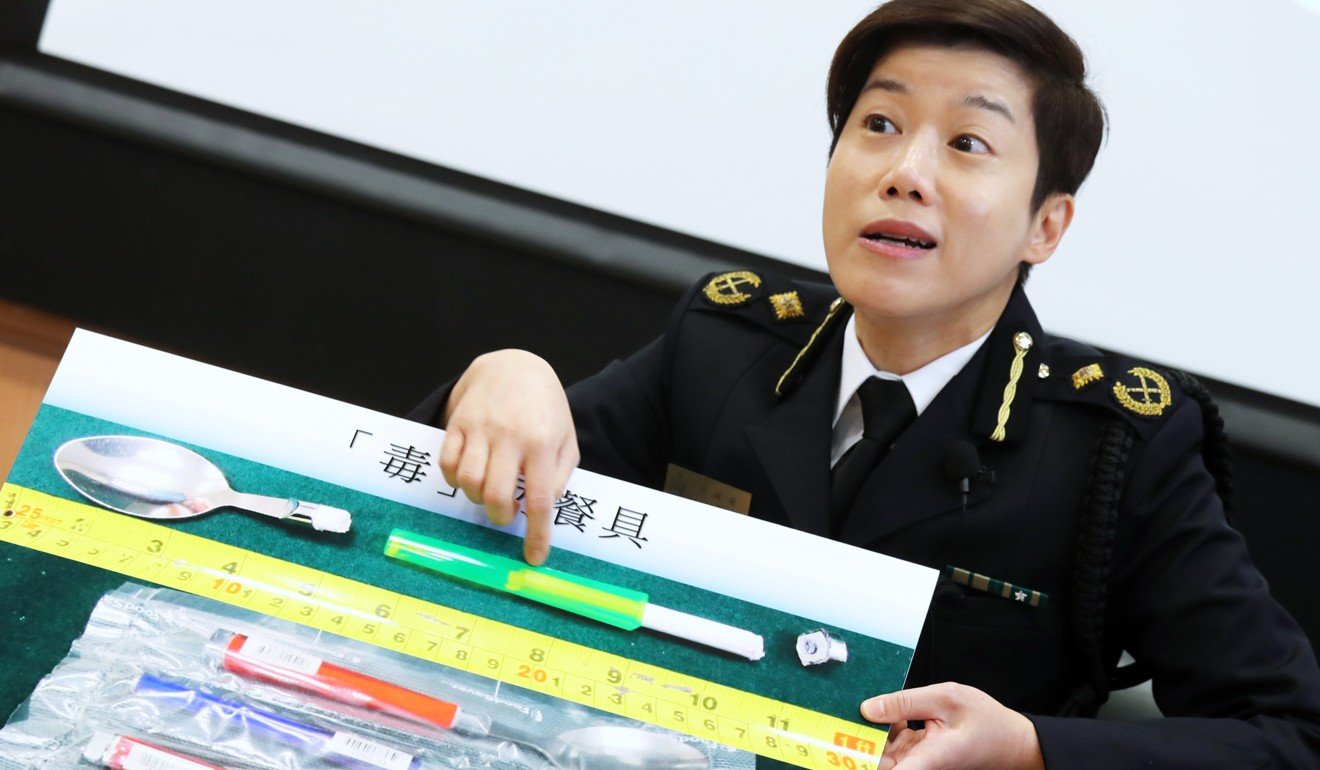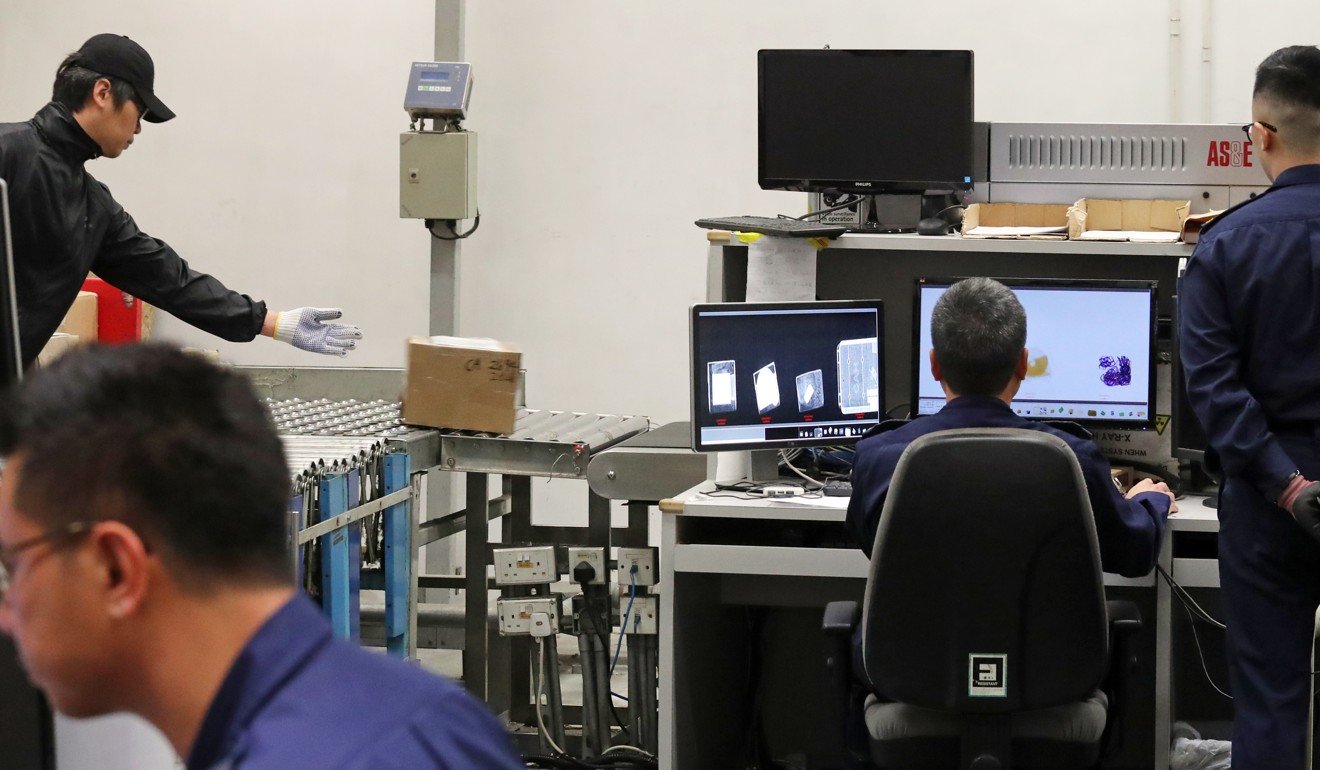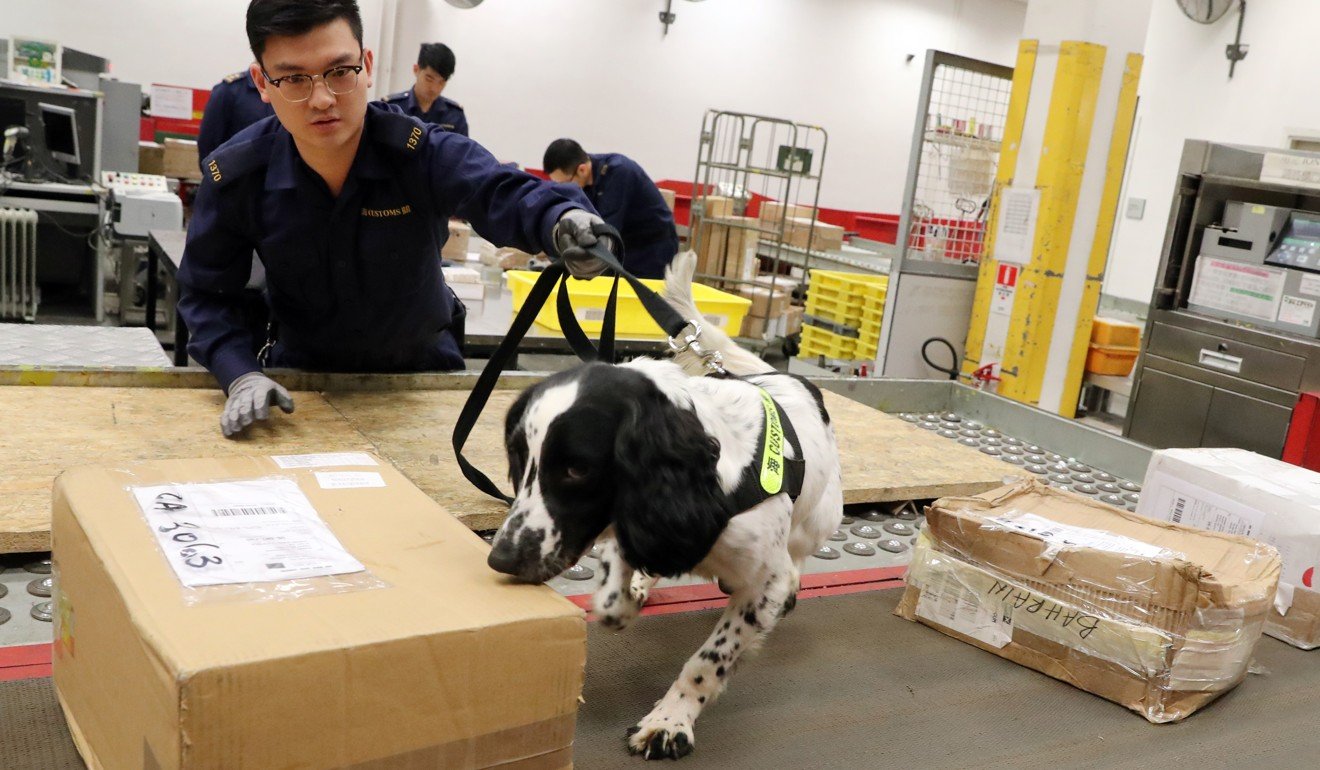
Hong Kong customs officers uncover three times more airmailed drugs than last year
General rise in number of parcels a factor in smugglers’ move to freight, with some sending illegal goods to innocent recipients, for collection later
The amount of drugs caught being smuggled in and out of Hong Kong via airmail has more than trebled in the first 11 months of this year against the same period last year, customs officials revealed on Wednesday.
A top border guard said the rise of cross-border e-commerce was a factor behind the surge in postal smuggling, because it had boosted the total number of parcels in transit and given more opportunities for drug traffickers to go under the radar.
Customs officers said smugglers were increasingly exploiting real company and home addresses in the city as destinations for drug parcels. Traffickers tell the unsuspecting recipients in advance that the package was wrongly sent to them, and arrange to go and pick it up later, thereby avoiding the suspicion of law enforcers.
“Culprits pretended to make business with the company and informed the company over email that they would send out samples for price quoting,” said Louise Ho Pui-shan, the Customs and Excise Department’s assistant commissioner, who oversees the ports and borders.
“Culprits then rang the company informing them about the ‘wrong’ parcel and asked the staff to keep the package for them and not to open it.”

The smugglers, or their associates, would later go and pick up the package, completing its safe passage across the border.
Customs chiefs reminded companies to stay alert for unfamiliar customers who actively seek business with them, then later claim to have sent a parcel in error, asking staff not to open it.
Official figures showed that the number of drug smuggling cases via post was up 38 per cent year on year to 607. Among those cases, 30 per cent involved goods entering the city, while another 30 per cent were leaving. The remaining 40 per cent involved goods transiting.
Ho said smugglers tended to mail illegal goods frequently but in small packets, to reduce the size of potential losses.
Hong Kong customs officers seize HK$105 million worth of precious metals from smugglers at the border so far this year
“Many air parcels do not have electronic data as they are not required to declare [contents] in advance. It mainly relies on the experience and alertness of our officers in detecting such cases,” Ho said.
“Some goods in the same consignment are normal while some are illicit. If we did not open every item in the parcels, we would not be able to confirm [the forbidden goods].”
Ho said she believed the rise in postal smuggling was partly spurred by a surge in the volume of post in general, with the increasing popularity of e-commerce.
The city has recorded a general uptick in the number of parcels crossing the border.

Hongkong Post processed an average of 5,428 tonnes of air parcels monthly for the first 11 months of this year – a 24 per cent increase on the same period last year. Other express carriers handled 5.5 million air consignments each month, weighing 58,000 tonnes.
The biggest drugs haul found among those parcels so far this year involved 5kg of cocaine, worth more than HK$4.7 million, from Peru in October. The cocaine was mixed into the wax of 10 candles, which had been stored in glass cylinders and covered with religious labels.
Cocaine seized in air packages was up 173 per cent year on year to 53kg.

Overall, HK$250 million worth of illegal goods have been caught being smuggled into Hong Kong through airmail this year, up by 43 per cent year on year. From all 1,635 cases, a quarter of the banned items were counterfeit goods, while endangered species, firearms and ammunition made up small portions.
A total of 54 people were arrested because of the cases.

